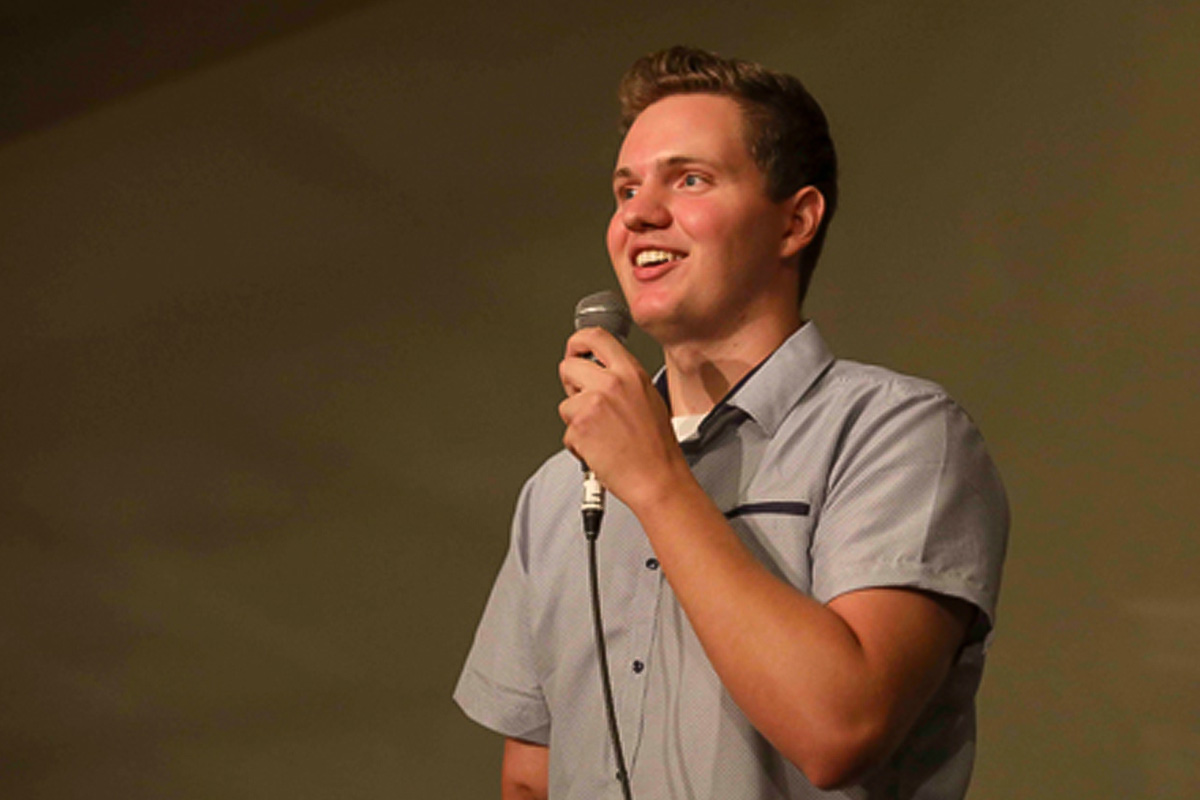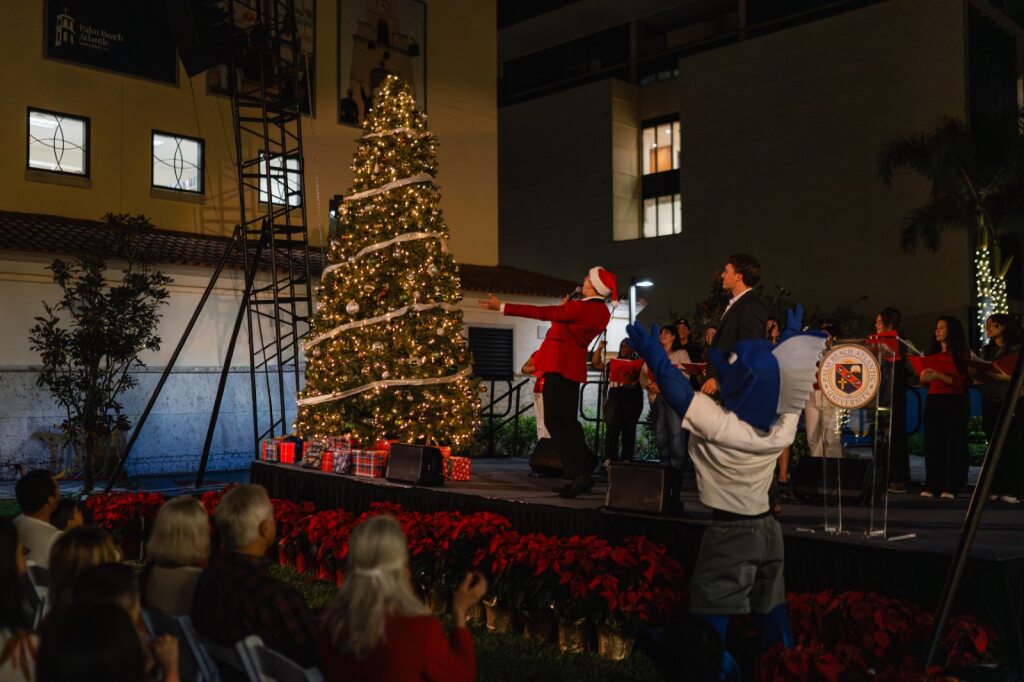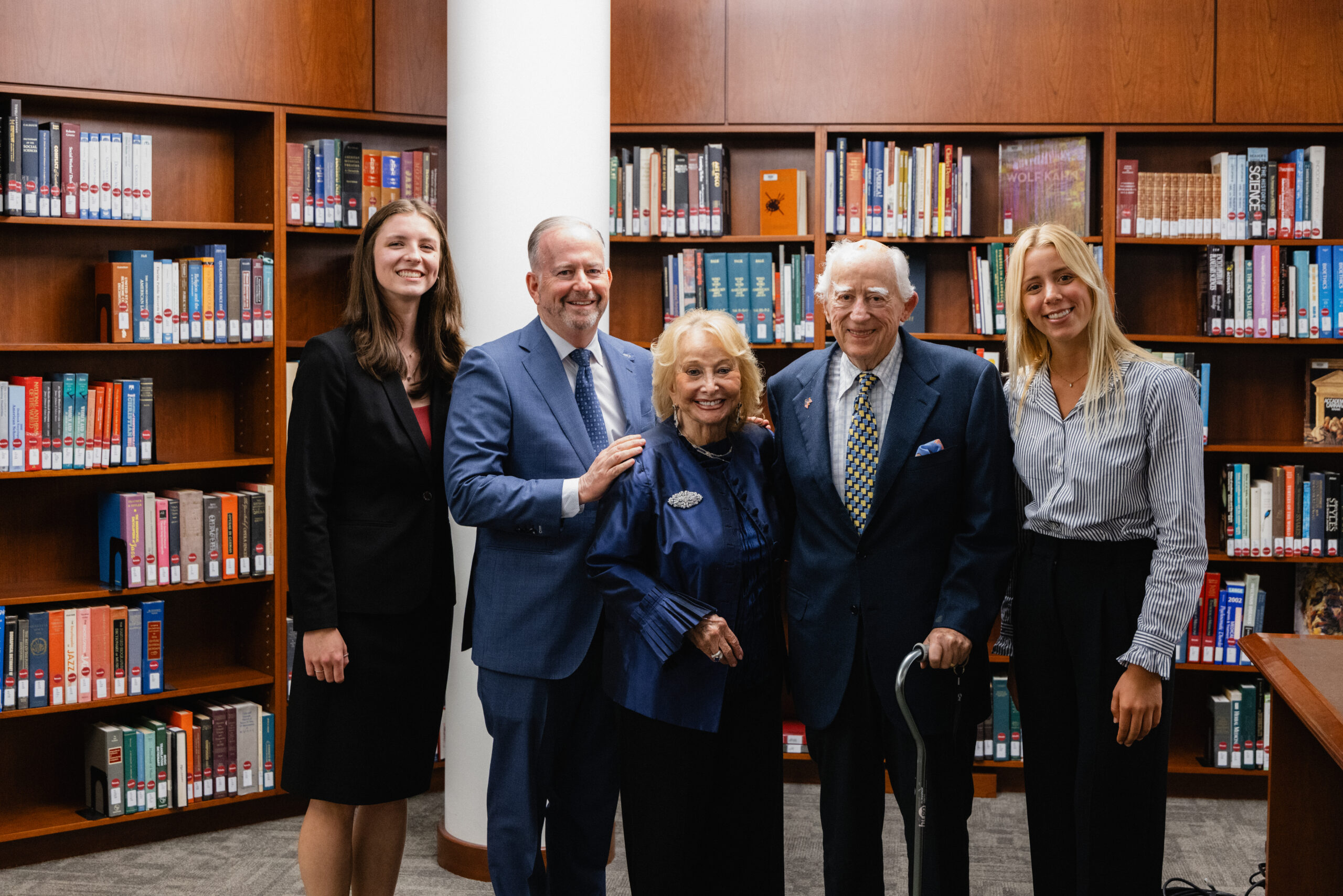“You can’t define yourself by what you lose, because no matter what you do, you’re going to lose something in your life.” So said the 2017 PBA grad and snorkeler who lost his arm and nearly lost his life when struck by the propellers of a 36-foot motorboat.
Students in chapel listened in rapt attention Wednesday as Carter Viss told about his ordeal, his recovery and how the 2019 Thanksgiving Day accident forever changed his perspective on life.
Viss, a Denver native, majored in marine biology and landed a job at Loggerhead Marinelife Center in Juno Beach, Florida. With a coworker from the center, on that Thanksgiving he had enjoyed a perfect day for snorkeling and started swimming back toward the shore near The Breakers resort on Palm Beach.
Suddenly, he heard a loud noise, and “saw a giant boat coming straight at me.” The boat bore down at 50-plus miles per hour, and its three propellers sliced into all four of his limbs.
He looked down to see his right arm fallen onto the reef about 20 feet below, “kind of like a scene from ‘Jaws.’” With his left wrist broken and both legs severely cut open, he began to sink.
Viss’ coworker Andy Earl swam through the wake and grabbed him. The boat that struck Viss turned around to pick him up, and a nearby swimmer quickly applied a tourniquet, using a cord from her paddleboard.
“That saved my life, because I was very close to bleeding out,” said Viss. He realizes now that the presence and actions of Earl and the other diver were among a series of life-saving miracles: “Everyone was in the right place at the right time.” But at that moment, Viss was screaming, “It’s over! I’m dead.”
Then his coworker and friend Andy Earl intervened with words Viss will never forget: “God is here. God is with you right now. It’s going to be OK.”
“The moment he said ‘God is with you,’ I felt an amount of peace I’d never felt before,” said Viss. “I remember looking up at the blue sky and just seeing the light of it. And for that, maybe three seconds, it was just light and peace.” His perspective turned from “I’m dead” to “I’m going to survive and make the best of this.”
From a worldly viewpoint, however, survival and recovery would require more miracles. Going into surgery he feared he’d wake up with no arms and no legs. A Palm Beach Post story later would tell of skillful surgeons and a prayer vigil at Viss’ hospital bed.
Throughout “a ton of pain, going in and out of surgery,” Viss kept thinking, “This is God changing me … to make something good out of this whole thing that happened to me.”
That thought “got me through the hospital,” he said. He marked his two-month hospital stay with a series of small victories, such as, “I moved from my bed to my wheelchair on my own today; I took five steps without collapsing in pain.”
Sometimes frustrations clouded those victories. Viss had loved playing piano: his way of unwinding for the day, his way of worshipping God. So in the hospital he felt a nagging worry that he’d never play piano again.
But once out of the hospital he went back to the keyboard, taking it slow, playing simple pieces with his left hand. He worked toward more complex piano pieces, making up for his one-handedness by trying new styles of play and by what became his broad mantra for recovery steps: “time and repetition.” That’s how he learned to do many everyday things with one arm, including his job at the Marinelife Center.
Closing his chapel message Wednesday Viss invited questions from the crowd. A voice called out, “Would you mind playing something for us on the piano?” Viss smiled, moved over to the shiny, black Baldwin and played the Prelude from Bach’s Cello Suite No. 3 in C major, BWV 1009.
When the piece ended, the students rose to their feet in applause. Then they left the DeSantis Family Chapel, armed with Viss’ advice about life after suffering loss: “You’ve got to define yourself” not by the loss, but “by how you react to it. And what you do to make the best of it.”
For Viss, making the best of what happened to him means impacting others, sharing his message “about the power of God. And about doing what you can to get through a hard situation.”
He also wants to make big changes in the world of ocean conservation, starting with pushing for “no wake” zones for boats in areas like The Breakers reef, to protect both marine and human life.
Viss recalls how his three seconds of “light and peace” in the bloody waters off that reef changed his outlook on life. “From here on out,” he said, “it’s going to be about encouraging others.”


